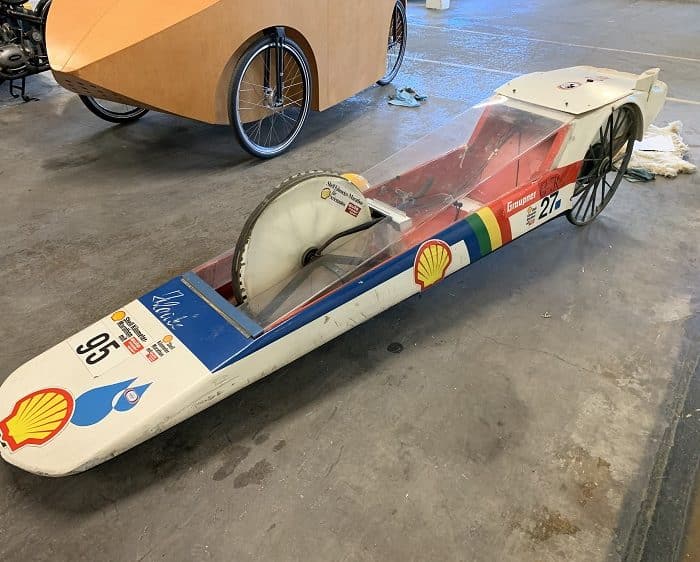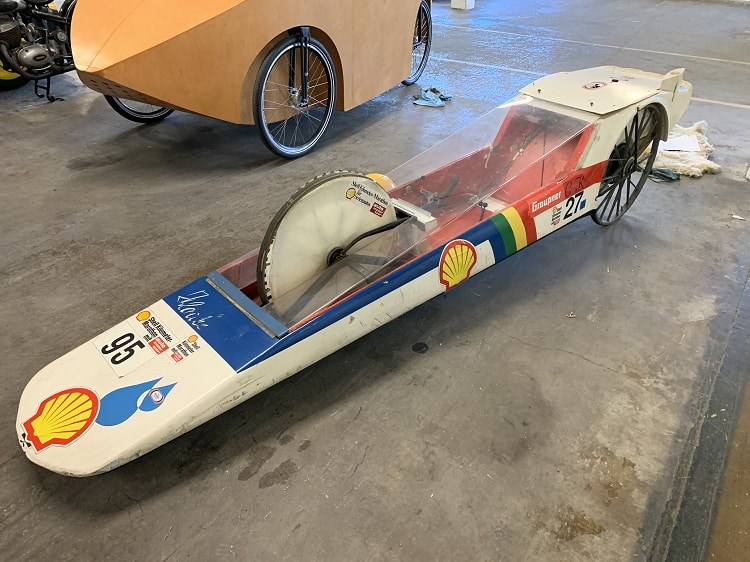
Shell Gas Mileage Car- 1985

The number of vehicles on our world’s roads are expected to triple by 2050. This will require some new thinking and innovation with a variety of fuels and technology in order to meet the growing demand for mobility, all while limiting carbon dioxide (CO2) emissions. It is a very good thing that the Shell Oil Company, an affiliate of Royal Dutch Shell PLC, a global group of energy and petrochemical companies with operations in more than 70 countries, shares this concern.
The Shell Eco-marathon Mileage Challenge, along with the Drivers’ World Championship, are two competitions that seek innovation through outside collaboration. The concept of the Shell Eco-marathon began in 1939 at a Shell research laboratory in the United States, as a friendly wager between scientists to see who could get the most MPG from their vehicle. In 1985 in France, the Shell Eco-marathon Challenge as we know it today was born.
High school and college students from different countries across their respective regions are invited to design, build and test experimental vehicles made of materials ranging from canvas and wood to carbon fiber. Top honors go to entries that travel the farthest distance using the least amount of energy, with additional awards in such categories as the lowest CO2 emissions and best design. Fuels range from gasoline, diesel, GTL, biodiesel and ethanol to batteries, solar and even hydrogen.
The prototype seen here is from 1985, the first year of the Eco-marathon. It was designed by German inventor Dieter Klauke. Klauke helped develop the Wankel engine for the Hercules W2000 motorcycle. He joined Fichtel & Sachs in 1965, first as a Wankel trial engineer, then as head of the experimental department, and later as development manager.
During the competition, held at Hockenheimring race track in Baden-Württemberg, Germany, his 15 year old son drove the car. They had installed a 4 stroke, 10cc 0.1 HP model airplane engine (converted from methanol to gas) which, along with its very light weight of 28 kg, helped the car achieve 300 km on one liter of gas (800 mpg). They made the Finals, but came in 13th out of 60 competitors. In the Final there was a headwind that forced them out of the competition. Mercedes-Benz won that first competition: 970 km on one liter of diesel fuel.
Specifications:
Manufacturer: Dieter Klauke
Country of Origin: Germany
Drivetrain: Rear-wheel drive, rear-engine
Engine: Four-stroke, 10cc, 0.1 HP model airplane engine
Transmission: one-speed, belt-driven
Miles Per Gallon (achieved): 800 mpg
Years of Production: 1985
Number Produced: 1
Original Cost: unknown
